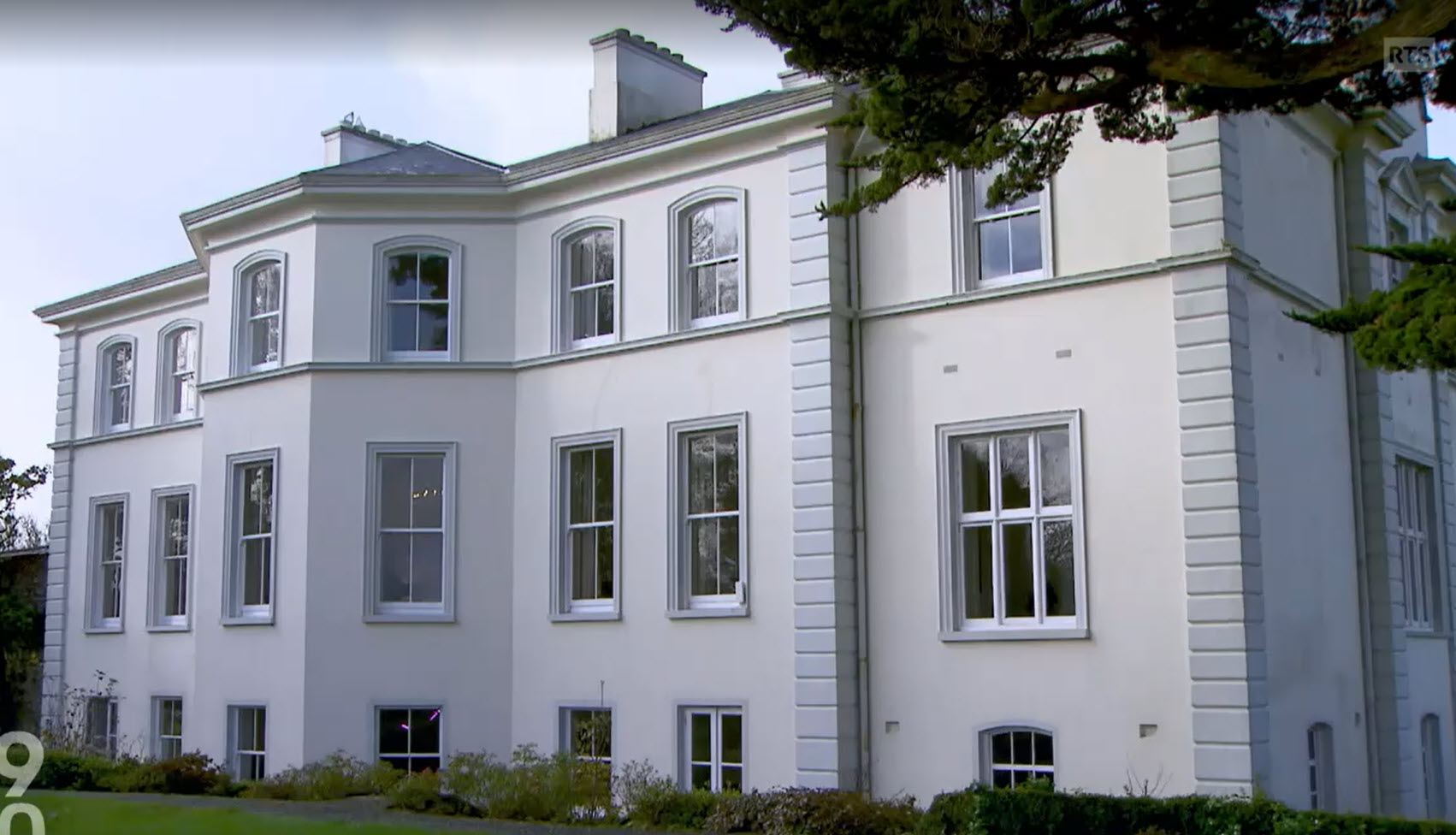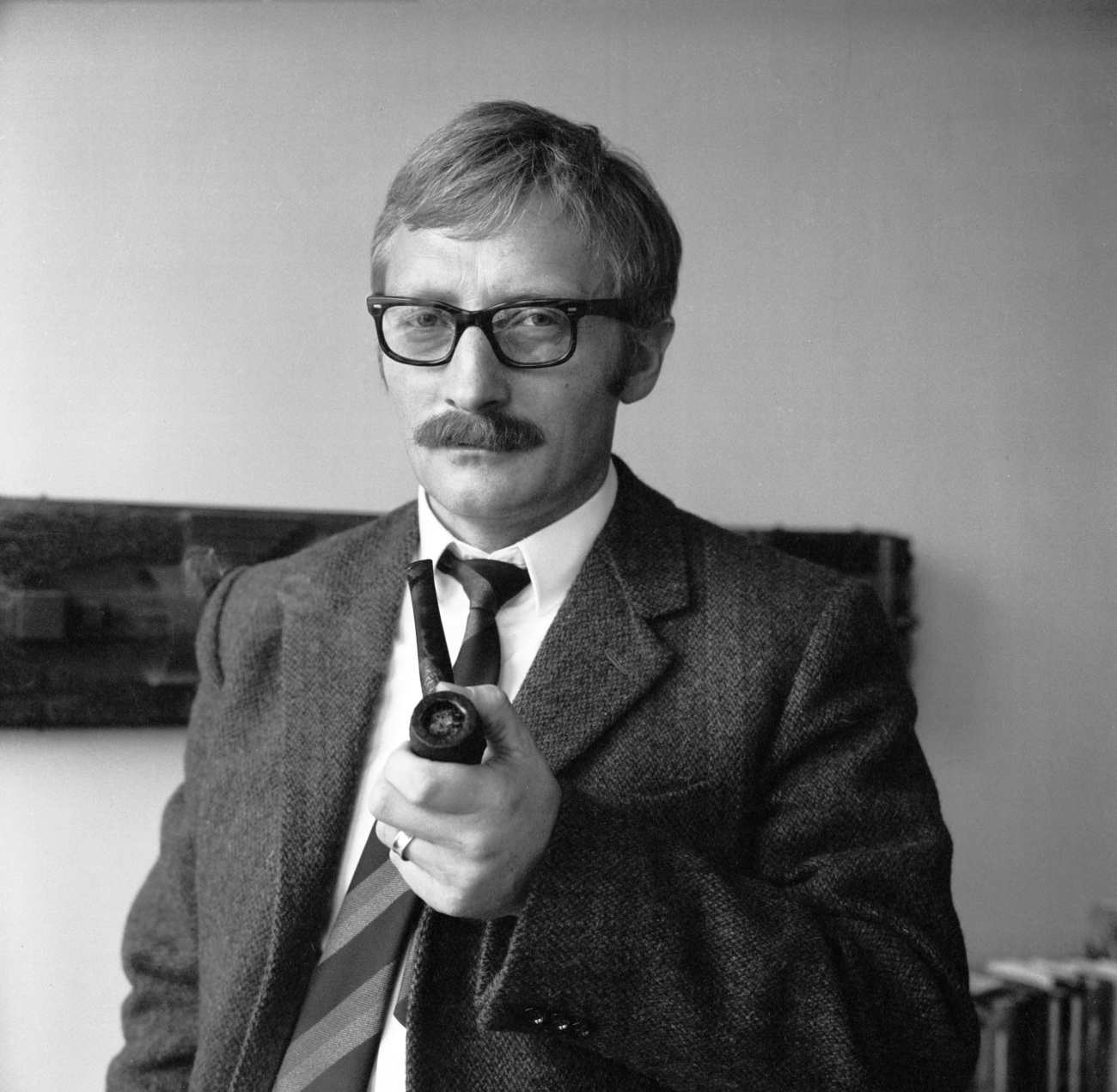The Irish hotel that could have served as the Swiss government’s secret base

Nestled in the middle of a vast estate in the Irish countryside, some 40 kilometres west of Cork, a superb manor house overlooks a private lake: the Liss Ard Estate is a rather special hotel that is discreet to say the least.
The Georgian-style building is even the “perfect place” to retire, according to its current manager, Alexi Argyris. “It’s the ideal hideaway,” he told Swiss public television, SRFExternal link.
A hiding place is precisely the role that this place steeped in history could have played for the Swiss government at the height of the Cold War. In the 1970s, the secret services envisaged the scenario of the Federal Council going into exile in the event of a Russian invasion of Switzerland.
In the basement of the building, which was renovated two years ago, there is a cellar where wine can be stored and tasted. In the past, this space was a telecommunications centre, from which the government could have run Switzerland, dreamt up by the hotelier at the time: Albert Bachmann. The hotel job was in fact a cover for the man who was a spy, the head of a special service of the Swiss intelligence services, responsible for preparing the resistance in the event of a military occupation of Switzerland.

In Ireland, Bachmann had thought of everything, including financing the purchase of the hotel. “For reasons of confidentiality, we were careful not to use federal funds,” historian Titus Meier told SRF. “We found a bank, the Union Bank of Switzerland, which supported the idea. It gave money for the purchase of the hotel.”
But the secret was out, and parliament took a close interest in the spy ring. At the helm was the future government minister Jean-Pascal Delamuraz from canton Vaud, for whom this “preposterous” idea of setting up a Swiss government in exile had come from “Bachmann’s fertile brain alone” and which “did not correspond to any kind of mission of the Federal Council”, he declared on television.

More
Controversial colonel dies
‘Everything was ready’
In Ireland, people still remember the story. “Everything was ready, so it was,” recalls Brian McCarthy, whose mother ran the hotel’s bar and kitchen in the 1970s. “Had war broken out and bombs been dropped on Europe, the Swiss could have been fed here for a long time, with fresh fish caught in their own pond.”
In the early 1980s, a team from Swiss public broadcaster, RTS, met Bachmann at his home in Ireland. “I lead an unorthodox life, that’s what other people think, especially in Bern. And they may be right, I may not blend in with the landscape,” he said.
Legend has it that a treasure trove of Swiss National Bank gold was hidden somewhere on the estate to support the Swiss government’s lifestyle, just in case – but it was never found.
Translated from French by DeepL/ts

In compliance with the JTI standards
More: SWI swissinfo.ch certified by the Journalism Trust Initiative
You can find an overview of ongoing debates with our journalists here. Please join us!
If you want to start a conversation about a topic raised in this article or want to report factual errors, email us at english@swissinfo.ch.